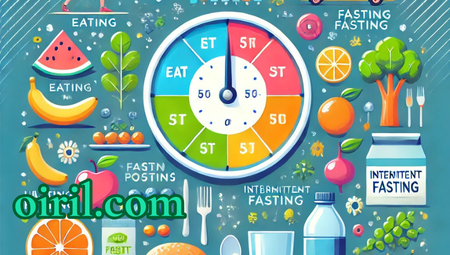Losing weight can be a challenging endeavor for many people. With an abundance of information available, it can be overwhelming to figure out which strategies are effective and sustainable. This article aims to provide a comprehensive guide on effective weight loss strategies that are backed by science and can help individuals achieve their weight loss goals in a healthy and sustainable manner.
Understanding Weight Loss
Weight loss occurs when you burn more calories than you consume, creating a calorie deficit. While this concept is simple, the process can be complex due to various factors that influence weight, including genetics, metabolism, hormonal balance, and lifestyle choices. Understanding these factors is essential for developing effective weight loss strategies.
The Role of Metabolism
Metabolism refers to the processes that convert food into energy. It includes two main components:
- Basal Metabolic Rate (BMR): The number of calories your body needs to maintain basic functions like breathing, circulation, and cell production while at rest. BMR accounts for about 60-75% of total daily energy expenditure.
- Physical Activity: This includes all movements you engage in throughout the day, from exercising to everyday activities like walking, cleaning, or even fidgeting. This can significantly impact the number of calories you burn.
Effective Weight Loss Strategies
Set Realistic Goals
Setting achievable and realistic goals is crucial for successful weight loss. Aim for a gradual weight loss of 1 to 2 pounds per week, as this is generally considered safe and sustainable. Break down your overall weight loss goal into smaller, manageable milestones. For example, if your goal is to lose 20 pounds, set a target to lose 5 pounds in the next month.
Create a Caloric Deficit
To lose weight, you need to consume fewer calories than you burn. Here are some tips for creating a caloric deficit:
- Track Your Intake: Use a food diary or a mobile app to monitor your daily calorie intake. This can help you identify patterns and make necessary adjustments.
- Plan Your Meals: Prepare your meals in advance to control portion sizes and avoid unhealthy choices when hunger strikes.
- Choose Nutrient-Dense Foods: Focus on foods that provide a high number of nutrients relative to their calorie content. These include fruits, vegetables, lean proteins, whole grains, and healthy fats.
Incorporate Regular Physical Activity
Exercise plays a vital role in weight loss by helping to burn calories and maintain muscle mass. Aim for a combination of cardiovascular exercise, strength training, and flexibility exercises:
- Cardiovascular Exercise: Activities like running, cycling, swimming, or dancing can help you burn calories. Aim for at least 150 minutes of moderate-intensity aerobic exercise each week.
- Strength Training: Building muscle increases your resting metabolic rate, meaning you’ll burn more calories even when at rest. Incorporate strength training exercises, such as weight lifting or bodyweight workouts, at least twice a week.
- Flexibility and Balance: Activities like yoga and Pilates can improve flexibility, balance, and overall body awareness, contributing to a more rounded fitness regimen.
Focus on Healthy Eating Patterns
Making sustainable dietary changes is key to long-term weight loss success. Here are some effective strategies:
- Eat Mindfully: Pay attention to your hunger and fullness cues. Avoid distractions while eating, such as watching TV or using your phone, to better recognize when you’re satisfied.
- Control Portion Sizes: Be mindful of portion sizes, as large portions can lead to overeating. Use smaller plates and bowls to help control portions visually.
- Limit Processed Foods: Processed foods are often high in added sugars, unhealthy fats, and calories. Focus on whole, unprocessed foods whenever possible.
- Stay Hydrated: Drinking water can help control hunger and may prevent overeating. Aim for at least 8 cups (64 ounces) of water per day, and consider drinking a glass of water before meals.
Get Enough Sleep
Quality sleep is essential for overall health and plays a crucial role in weight management. Lack of sleep can disrupt hormones that regulate appetite, leading to increased hunger and cravings for unhealthy foods. Aim for 7-9 hours of sleep each night to support your weight loss efforts.
Manage Stress Levels
Chronic stress can contribute to weight gain by increasing the production of the hormone cortisol, which is associated with increased appetite and cravings for high-calorie foods. Implementing stress management techniques can help support your weight loss journey:
- Practice Relaxation Techniques: Engage in activities such as meditation, deep breathing, yoga, or mindfulness to reduce stress levels.
- Stay Connected: Build a support network of friends, family, or a weight loss group to share your experiences and challenges.
Consider Behavioral Changes
Incorporating behavioral changes can enhance your weight loss efforts. Here are some strategies to consider:
- Set Specific Actionable Goals: Instead of vague goals like “eat healthier,” specify what that means. For example, “I will eat at least five servings of fruits and vegetables each day.”
- Reward Yourself: Celebrate your achievements with non-food rewards, such as a massage, new workout gear, or a fun outing. This can help keep you motivated without derailing your progress.
- Stay Flexible: Life can be unpredictable, and it’s essential to adapt your strategies as needed. If you experience setbacks, don’t be too hard on yourself—focus on getting back on track.
Educate Yourself About Nutrition
Understanding basic nutrition principles can empower you to make informed food choices. Consider these tips:
- Learn to Read Nutrition Labels: Familiarize yourself with reading food labels to understand serving sizes, calories, and nutrient content.
- Experiment with Cooking: Try preparing meals at home to control ingredients and portion sizes. Explore new recipes that focus on whole foods and balanced nutrition.
- Seek Professional Guidance: If you’re struggling with weight loss, consider consulting a registered dietitian or nutritionist for personalized advice and support.
Keep a Positive Mindset
A positive mindset is essential for maintaining motivation and resilience throughout your weight loss journey. Here are some tips for cultivating a positive outlook:
- Practice Self-Compassion: Be kind to yourself and recognize that weight loss is a journey with ups and downs. Avoid negative self-talk and focus on your progress rather than perfection.
- Visualize Success: Take a moment to envision your goals and the benefits of achieving them. Visualization can help reinforce your commitment and motivation.
- Stay Inspired: Read success stories, watch motivational videos, or listen to podcasts that resonate with your weight loss journey. Surround yourself with positive influences that encourage your progress.
Monitor Your Progress
Regularly tracking your progress can help you stay accountable and motivated. Here are some methods to consider:
- Weigh Yourself: Weigh yourself weekly at the same time of day to monitor your progress. Keep in mind that fluctuations are normal, and focus on long-term trends rather than day-to-day changes.
- Take Measurements: In addition to tracking your weight, consider taking body measurements (e.g., waist, hips, thighs) to gauge changes in body composition.
- Celebrate Milestones: Acknowledge your achievements along the way, whether it’s reaching a specific weight, fitting into a favorite outfit, or completing a challenging workout.
Embarking on a weight loss journey can be daunting, but with the right strategies and mindset, it is achievable. Focus on creating a sustainable calorie deficit, incorporating regular physical activity, and making healthy dietary changes. Remember to set realistic goals, prioritize sleep and stress management, and stay positive throughout your journey. By adopting these effective weight loss strategies, you can work towards a healthier, happier you. Embrace the process, stay committed, and celebrate every step of the way. Your journey to better health starts now!





